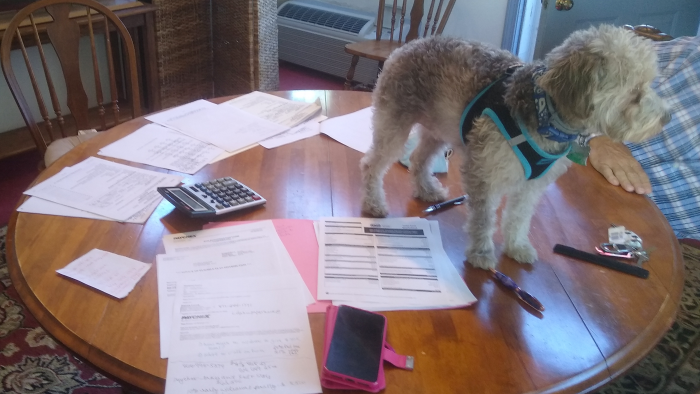Michael L. Lavender, Attorney at Law
Attorney Lavender has made a career working with people moving through difficult life transitions in Cape Cod Massachusetts. He has published several articles on family mediation and conflict resolution, and has been featured on public interest television, radio talk shows and regional newspapers. He has assisted hundreds of couples by sensitively educating and guiding them toward equitable and better feeling settlements outside of the adversarial legal system.
DIVORCE MEDIATION: My Perspective

Our prevailing adversarial legal process is set up in a way that maximizes fear. Each party is represented by lawyers whose job is to characterize the other spouse as bad, blameworthy, and deserving of any additional pain or suffering that he or she can convince the legal system to inflict. “Winning” is often defined strictly in monetary terms. Negotiation usually involves each party using intimidation based tactics that constantly up the ante while generating stratospheric legal costs. Operating in an alien legal system, each spouse feels enormously threatened and under attack by someone who knows him or her better than anyone in the world. From that jittery place of derailed perspective, people often do and say whatever it is they have to (or are advised to) do and say in order to protect those things which they dread losing—even if the truth is being bent a little, or a lot.
At the end of it all, after the judge has made his decision and the lawyers have been paid, there you are, with your ex, having to co-parent. Folks who have thusly been to war with each other tend to minimize contact and communication relating to parenting and other important issues, since each interaction feels so awful and toxic. This is the springboard from which most couples launch their post-divorce relationship.
Divorce mediation in Cape Cod, MA is an attempt to provide a safe environment to discuss and resolve difficult issues while recognizing the bottomless pit of using attack or blame as a negotiating strategy. Couples must be willing to stretch outside of one’s comfort zone for the benefit of the whole, rather than the one. Each party must at least countenance the perspective that it is as much in his or her self interest that the other also have his or her needs met, since each party wisely seeks a positive goal of a post-divorce relationship colored by a minimum of relational negativity. Children are profoundly benefited by parents who adopt this viewpoint.
The most important quality of a divorce mediator in Cape Cod, MA is his or her ability to remain present and compassionate in response to either client’s anger, greed or hurt, however unskillfully expressed. If a client feels judged by a mediator, he or she will not feel safe and will remain defensive and shut down. If a client does feel safe, he or she becomes more open and receptive to the more objective legal and attitudinal offerings of the mediator.
There are many legal and financial issues involved in divorce. Many couples’ profiles have reasonably predictable judicial outcomes. Although a mediator’s job is not to act as judge or to pigeonhole a couple into any particular financial outcome, a mediator does have an obligation to tactfully educate the couple as to legal and financial matters. Thus, if a couple’s comfort level during mediated sessions can be delicately managed – and if this can take place within the context of safety which allows for the expression of difficult emotions — then a mediator has a very good chance of structuring a wide range of financial and child care arrangements which will be acceptable to both the couple and to the court.
Though considerably less expensive than litigation, mediation is not for everyone. Mediation is a poor choice for couples who lack trust in the other’s financial disclosure. Divorce mediation in Cape Cod, MA presumes full, honest and complete financial disclosure. If this is absent, mediation can hurt you, and I would advise against it. Also, many couples are not on the same page as to the fact of divorce, and often one party would rather seek reconciliation. A mediator can only divorce two participating people, and it is my experience that the person who wishes for a speedy process becomes frustrated with mediation since it can only proceed as fast as the party who doesn’t want the divorce and who participates grudgingly.
Life is not what it is supposed to be, it is the way it is. Divorce and relational conflict are part of our human condition. It doesn’t mean that we’re bad people or personal failures, it just means we’re doing the best we can given the state of our society’s social development which models to our disadvantage how to deal with conflict. If divorce becomes the only solution, mediation encourages a wise recognition that each party fundamentally wants the same as the other — which is their children’s love, peace of mind, financial wellbeing and the avoidance of painful and unnecessary family trauma.
